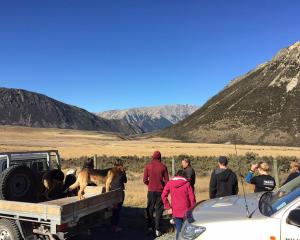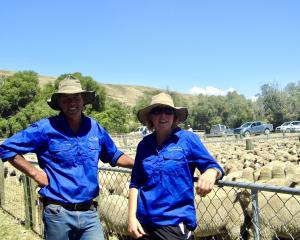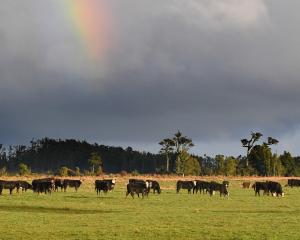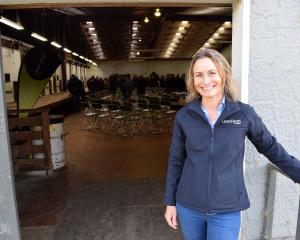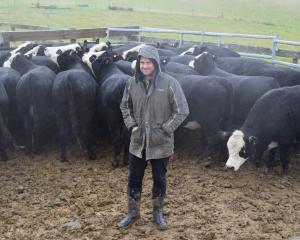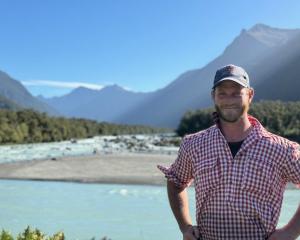
The company was committed to Southland and it had spent significant money at its Lorneville plant, near Invercargill, in the last couple of years, Mr Surveyor said.
That included spending $12.5million to install the latest processing technology — including new generation primal cutters, middles and fores technology — a major engine room upgrade, and reconfiguration of its venison plant so it could also process beef.
Alliance is Southland’s largest employer and Lorneville is the world’s largest ovine processing plant, employing up to 2000 people in peak season.
The company recently completed a series of roadshow meetings around the country, addressing and hearing from shareholders and suppliers.
It had been a year "quite out of the box" in terms of volatility with continual and substantive changes in terms of global markets, Mr Surveyor said.
There were high protein prices and farmgate prices for lamb at the beginning of the year, much of that driven out of China with African Swine Fever affecting the pig population.
The Chinese Government then intervened in the Chinese market, primarily concerned that the price of protein was getting so high.
Farmgate prices came down and then Covid-19 hit China in January. China went into lockdown and product flows were massively disrupted which meant a further correction.
Product was initially moved into North America and Europe to compensate, but then Covid-19 spread to those areas.
It was not "small little tweaks" involved, but massive oscillations and it meant that sale teams had to do an incredibly good job as markets opened and shut.
Alliance Group was ending the year with its inventory in good shape. It did not have massive volumes lying around, he said.
New Zealand also had its own climatic challenges during the year, including drought, floods and snow.
But every week of the year, the co-operative did not stop taking supply and it honoured every one of its series of minimum price contracts, he said.
Whether it was the Mataura plant affected by flooding or the impact of Covid-19, Mr Surveyor said he was "pretty proud" of the way employees had acted. They had done a "stunning job" of going above and beyond.
During Covid-19, not only did they have to adapt to new rules and protocols but, in many cases, employees were coming to work wondering whether there was potential of catching the disease — "and yet they came, because they cared".
Alliance claimed just over $34million through the Government’s wage subsidy and it had paid $17million of that back.
The money had all gone to employees, and Mr Surveyor said the company welcomed a review of its position by the Ministry of Social Development, which was under way, and it would respect the outcome of that process.
The company will release its financial results later this year and while it would be a "positive number" , it was too early to tell whether that would be a big or small figure, he said.
One thing the year had demonstrated was the resilience and agility of the company and the continuing uncertainty meant it would make sure it remained agile.
While it was easy when things were difficult to "go into your shell and stop trying to develop the business", a conscious decision had been made not to do that so when the market did turn, it would be well position for the future.
Generally, farmers had been "pretty appreciative". While it was not always easy for farmers when plants were working at reduced capacity, farmers and the company had to work together. Farmers were also increasingly appreciative of the importance of processing space.
Farmers voiced concerns at the roadshow meetings about the legislative changes around water. The need for those rules to be practical and workable came through strongly, Mr Surveyor said.
They were also concerned about the continuing downward trajectory of the price of strong wool.
Alliance Group had committed seed funding to the Strong Wool Action Group.
When it came to the year ahead, it was very difficult to give a full-year forecast. There was some good demand for Christmas chilled lamb and, while prices were not going to be as high as the previous year, the prognosis was "not too bad".
Beef was in a reasonably solid position, while the next spike of Covid-19 was going to make the venison market quite challenging.
Alliance was working with the Government, Meat Industry Association and other meat companies over the significant challenge around access to foreign workers.
While the preference remained to employ New Zealand locals, it was important to have access to foreign workers where that was not possible.
There would be a significant problem if they were not allowed into the country. Historically, the red meat sector was short of about 2000 people, he said.
The company was trying to accelerate training and development of people so it was best prepared if it was not unable to access them, he said.
Mr Surveyor said the year was finishing with a sense that there were so much opportunity in front of the company.
He was excited about the launch of Alliance’s handpicked lamb programme, as part of its premium programme which aimed to capture more value to bring back to farmers, by selling to discerning customers.
Handpicked beef was launched last year and lamb this year, with North America primarily targeted, and farmers had been "incredibly interested" in the programme which was being well received. Venison would be added at some stage.


